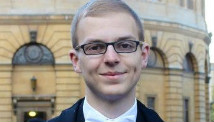Microsoft's big Windows 8 push
SOPA backlash
Live-tweeting war
Apple maps stumble
Apple vs. Samsung
Facebook's botched IPO
The Instagram boom
Megaupload and Kim Dotcom
Mid-sized tablets make their mark
Nintendo launches Wii U
Yahoo hires Marissa Mayer
Tech's role in the 2012 election
STORY HIGHLIGHTS
- In 2012, older tech companies such as Microsoft tried to revamp their brands
- The year kicked off with a huge online protest against SOPA
- Facebook bought photo-sharing app Instagram, but its IPO was a disappointment
- Apple released its iPhone 5 and iPad Mini but bungled its new mobile maps app
(CNN) -- In the tech world, 2012 was the year of the reboot. Older, established tech companies such as Microsoft, Yahoo and Nintendo all tried to restart their brands with bold new products and fresh blood in the executive suites.
Facebook struggled with its new life as a publicly traded company, and Instagram, the photo-sharing network it acquired in April, was dragged along for the ride.
There were inspiring stories, such as the Internet coming together to protest anti-piracy legislation. And there was darker news, like the Israeli military live-tweeting its strikes against Gaza.
And as always, the world's dominant and most closely watched tech company was all over the news. Apple did a little bit of everything in 2012, from hit new products (the iPad Mini) to high-profile failures (Apple Maps) to some old-fashioned courtroom drama in its patent war with Samsung.
Here are our picks for the top 12 tech stories of 2012. What did we leave out? Let us know in the comment section below.
Microsoft's big push
This was the year Microsoft took a big, bold and surprisingly fun step with a new version of Windows, an updated mobile operating system and its very own iPad rival.
The company, best known for its efficient but stodgy desktop software, needed to do something fresh to get customers' attention in 2012 and started with its flagship product. Windows 8 is a complete overhaul of the Windows operating system. Microsoft nixed the Start button and mixed a playful touchscreen interface with a more traditional desktop experience that runs on tablets, traditional computers, and hybrid machines.
The company also made a leap into the hardware market, releasing its first tablet, the Microsoft Surface, which ran a truncated version of the new Windows 8 operating system. And finally, there was Windows Phone 8, a major revamp of its smartphone operating system, which Microsoft hopes can compete with Apple's iOS and Google's Android.
It's still too soon to judge any of the new releases as successes or failures, but give Microsoft credit for taking chances.
SOPA backlash
In January, a pair of anti-piracy bills united the Internet in outrage. The proposed legislation, the Stop Online Piracy Act, or SOPA, and the Protect IP Act, or PIPA, would have restricted access to sites associated with pirated content, including the search engines and ad networks that do business with them.
The Internet cried censorship, and on January 18 some of the most popular sites blacked out their pages in protest. Reddit, Craigslist, Boing Boing, The Oatmeal, the English-language version of Wikipedia and thousands of other sites went dark. Even Google put a black censorship box over its logo. There were also petitions and organized boycotts of companies that supported the bills.
The protests worked, as both SOPA and PIPA were shelved. It was an impressive demonstration of the power of an organized Internet community.
Live-tweeting war
Violence and war have long been documented on Twitter and other social networks -- typically by journalists and by regular people on the ground (notably the Pakistani witness to the 2011 raid that killed Osama bin Laden).
But in November, the Israeli military took this concept to a new level. During its conflict with Palestinian forces in Gaza, the Israel Defense Force tweeted updates, including the news it had "eliminated" Hamas leader Ahmed Jabari. The military arm of Hamas responded on Twitter with its own provocations.
The back-and-forth between the warring sides signaled a jarring evolution in how war is broadcast in real time.
iPhone 5 and Apple Maps stumble
Every Apple hardware release is a big news story, starting with rumors months in advance and peaking with a well-oiled Apple press event, followed by usually glowing reviews and huge sales numbers. But in 2012, Apple made a major misstep when it released the iPhone 5 and its new operating system, iOS 6.
The company dropped the Google-powered maps that had come pre-installed on every iPhone since 2007. In its place, Apple introduced its own mapping app. Apple Maps looked stunning, with 3-D graphics and neat features like Flyover and turn-by-turn directions. All it was missing was transit directions and accuracy -- the maps were riddled with mistaken locations and outdated information.
The resulting criticism inspired an apology from CEO Tim Cook and led to an executive shakeup at Apple. Customers turned to third-party map apps until Google finally released an iOS version of its popular maps in December.
Apple vs. Samsung
It was the biggest tech trial of the year. Two of the top phone and tablet manufacturers went to war when Apple accused Samsung of infringing on its iPad and iPhone patents for a variety of tablets and smartphones. The drama culminated in a federal jury trial over the summer that offered a rare peek into how notoriously secretive Apple operates.
The story became huge because of the large amount of money at stake and the implications that its verdict would have on Samsung's business and the Android platform.
The jury decided in Apple's favor, awarding the company just over $1 billion in damages. But the case is far from over. Lawyers for both sides will continue bickering over potential appeals for months and possibly years to come.
Facebook's botched IPO
It was the most anticipated IPO of the year, and one of the largest ever for a tech company. Social-media darling Facebook looked primed for a big public opening: The company was valued at $104 billion, snapped up popular photo-sharing app Instagram and was still growing.
But then an array of problems and misjudgments led to a botched IPO in May, and the company's stock plummeted. The initial offer price of $38 was too high, too many shares were issued, its opening day was marred by Nasdaq's technical glitches, and underwriter Morgan Stanley was fined for improperly influencing share sales.
The stock price dropped significantly, hitting a low of $17.55 on September 4. Facebook is still struggling to recover some of its early-2012 luster.
The Instagram boom
Instagram started out scrappy two years ago as a fun little app for sharing sepia-shaded photos with friends. But when its user base skyrocketed, Facebook bought it for $1 billion in cash and shares of Facebook stock. That amount later dropped to $735 million as the value of Facebook shares plummeted.
By September, Instagram had more than 100 million users. The app capped off its big year with a rite of passage for social networks: a bungled update to its terms of service that sparked user outrage and led to a hasty backtrack by founder Kevin Systrom.
Instagram's challenge for 2013 is to figure out how to grow its free service into a business that makes money so that Facebook can begin to get its money's worth.
Megaupload and Kim Dotcom
The Megaupload case would have been mildly interesting on its own. A popular file-sharing company and its various sites were shut down by the F.B.I for piracy. But when Megaupload founder Kim Dotcom was arrested in January at his lavish New Zealand estate, he went from unknown entrepreneur to a flamboyantly rich cult hero.
Dotcom (he legally changed his last name from Schmitz in 2005) did what any self-respecting boy video-game nerd would do with millions of dollars. He bought a yacht, helicopter, luxury cars and motorcycles. He lived with his model wife in a $24 million rented mansion in New Zealand where he spent hours playing "Call of Duty: Modern Warfare 3," earning a spot as the top-ranked player in the world.
But after Dotcom was jailed and his assets were seized, he slowly emerged as a leader for Internet freedom activists who thought he was unfairly targeted. He's still fighting the charges and using his newfound fame to launch new projects. His current plans include a new file-sharing site that encrypts all its files, and a streaming music service called Megabox.
Mid-sized tablets take off
It was the rare case of Apple following a trend instead of setting it. Apple introduced its 7.9-inch iPad Mini in October to take on its new rivals in the tablet market: cheaper 7-inch devices from Google and Amazon. While the Kindle Fire and Nexus 7 were only selling modestly compared to the iPad, Apple quickly recognized the growing demand for a smaller, more portable device.
The iPad Mini proved especially notable because Apple's late CEO, Steve Jobs, famously stated a 7-inch tablet would never make it in the market because it was "too big to compete with a smartphone; too small to compete with an iPad." This may have been one of those rare cases in which Jobs was wrong.
Nintendo launches Wii U
In November, Nintendo released a new version of its popular Wii game console, which while groundbreaking when launched in 2006 was badly in need of a refresh.
The Wii U's most novel feature is a touchscreen tablet controller called a GamePad, which communicates with the main console. Inside the tablet are motion control sensors, speakers, a camera, buttons and other bells and whistles -- all of which the gamer uses to interact with what's happening on the larger screen.
It's a bold move for the company and brings a new perspective to console gaming, although the Wii U has received mixed reviews so far.
Yahoo hires Marissa Mayer
Aging Internet giant Yahoo was facing slumping revenues and internal strife in July when it hired Google exec Marissa Mayer as its new chief executive. The hire made headlines for many reasons: Mayer was a bold choice that showed Yahoo was serious about shaking things up. She was also young, a Silicon Valley power player, and a woman who was expecting her first child.
There was much media hand-wringing over her pregnancy, with some pundits wondering aloud whether Mayer could juggle a newborn baby and a demanding new job. Many saw her as a role model for working mothers.
But when the news settled, the real question returned: Could Mayer save the floundering Yahoo? So far she has shaken up Yahoo's executive team, given employee morale a much-needed boost and begun to improve the company's mobile offerings, including a stunning new Flickr app.
It will take a while to properly gauge her impact, but investors seem optimistic. Yahoo's stock price has risen $4 a share since her hiring was announced.
Tech's role in the presidential election
Technology issues such as net neutrality weren't discussed much during the 2012 presidential election, but tech played a huge role in rallying supporters and getting out the vote. President Obama, arguably the most tech-savvy of U.S. presidents, went on Google Plus and Reddit to take questions from voters.
And both his campaign and that of his GOP challenger, Mitt Romney, sent social media messages almost daily in attempts to sway media reports and public opinion.
But the most impressive use of tech took place behind the scenes, where both sides used new and powerful computer databases to target voters. The Romney campaign's get-out-the-vote program, called Orca, suffered technical glitches on Election Day and was perceived to have been outflanked by Obama campaign software which compiled massive amounts of data on voters and dispatched volunteers to pinpoint locations across the country.












